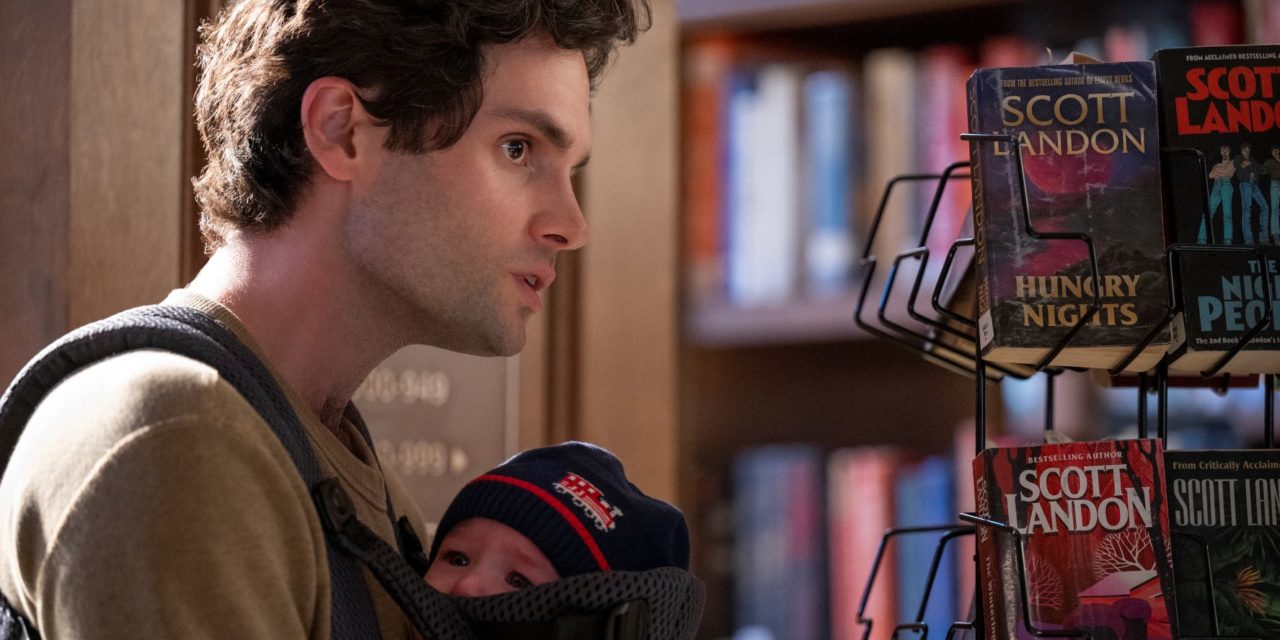By Keahi Akina | Staff Writer
For a show that is in constant danger of becoming Dexter 2.0 (a compliment and a curse), Netflix’s “You” proves yet again in Season 3 that it can evolve.
The new season, released last Friday, sees show frontrunners Joe Goldberg (Penn Badgley) and Love Quinn (Victoria Pedtretti) navigating their relationship, parenthood, and their all-seeing tech-rich empathy-poor neighbors in the fictional Bay Area suburb Madre Linda. While they, and their murderous ways, are central to the plot, it’s the opportunities for representation and storytelling beyond the boundaries of the crime fiction genre that bring out the best of “You.”
“You” has a formula that almost guarantees its success. Its led by a charming and handsome protagonist who obsesses over and murders beautiful women. It’s a subject that fascinates viewers. “You” takes the genre and tells a story beyond its gore. Murder is now just the catalyst, the real stories are about affluence, current scandals and childhood trauma.
In Episode 1 through Joe’s narration, a trope that has always been central to the show, he relates to the audience, “I don’t believe in conspiracies except when they’re about unfair advantages of being rich.” The conspiracy in question was that the Madre Linda neighborhood had access to COVID-19 vaccines as early as August 2020.
The show makes itself relevant to a world of vaccines and vaccine denial.
It deals with the latter in Episode 2 when Love and Joe’s son Henry gets sick with the measles virus spread to them from the children of two parents who don’t believe vaccines were meant for humans.
Henry has to go to the hospital, Joe gets sick and discovers his lack of vaccinations and Love exercises a form of justice that’s proving to be all-too-easy for her to act out.
Joe, in realizing he was never vaccinated, has to build upon past seasons’ confrontations with his past. Flashbacks are increasingly common in Season 3, and many of them give light to Joe’s childhood and context (but not consent) to Joe’s perversions.
In Episode 3 the show takes the opportunity to teach Joe, and the viewers, about a phenomenon that occurs when rich and attractive white women go missing. That is, they receive a disproportionate amount of media attention, more than other people of other demographics might attract.
Later on in that episode, a dig into one of Joe and Love’s victims’ past calls back to the college admissions scandal. Amid the payments to fake accounts for fake test scores are payments to silence the victims of sexual assault. The latter revelation turned a somber scene into a desperate one that showed the long path of victims that money-for-silence leaves in its wake.
If there is an opportunity for social commentary, show creators Sera Gamble and Greg Berlanti certainly entertained the idea. It is a little hypocritical coming from a show that absolutely glamorizes a sociopathic white male serial killer that they spend so much time making such social commentary. Regardless, it makes for a watchable season full of “I know what they’re referencing” pop-culture-trivia moments.
Joe and Love struggle in their relationship with each other, finding themselves lacking the idea of love that had brought them together in the first place. Joe finds a new obsession with the neighbor next door, and when she goes missing (no surprise to Love or Joe), he rekindles his fixation with a coworker at their local library. Love finds herself in a continued relationship with a college student, who turns out to be the son of the very same missing neighbor.
Couples therapy proves to be a point of humor and relatability in the series. It’s relatable to lie to a therapist on occasion, painting bright strokes of color over bleak personal stories. It’s a funny parallel to discover the ways that their murders, stalking, and cheating all amount to the same tropes that drive our own lives and relationships.
They struggle as much with their relationship with each other as with their relationship with their child. Joe and Love both question their worthiness as parents while juggling fitting in with the neighbors, murder and adultery.
“You” Season 3 is the best season yet of the exciting Netflix series. It uses the crime genre to tell more than just their own story. It defies the typical structures that govern the genre to repetition and tells nuanced stories that represent an abundance of demographics. It’s worth the hype and worth the binge.






